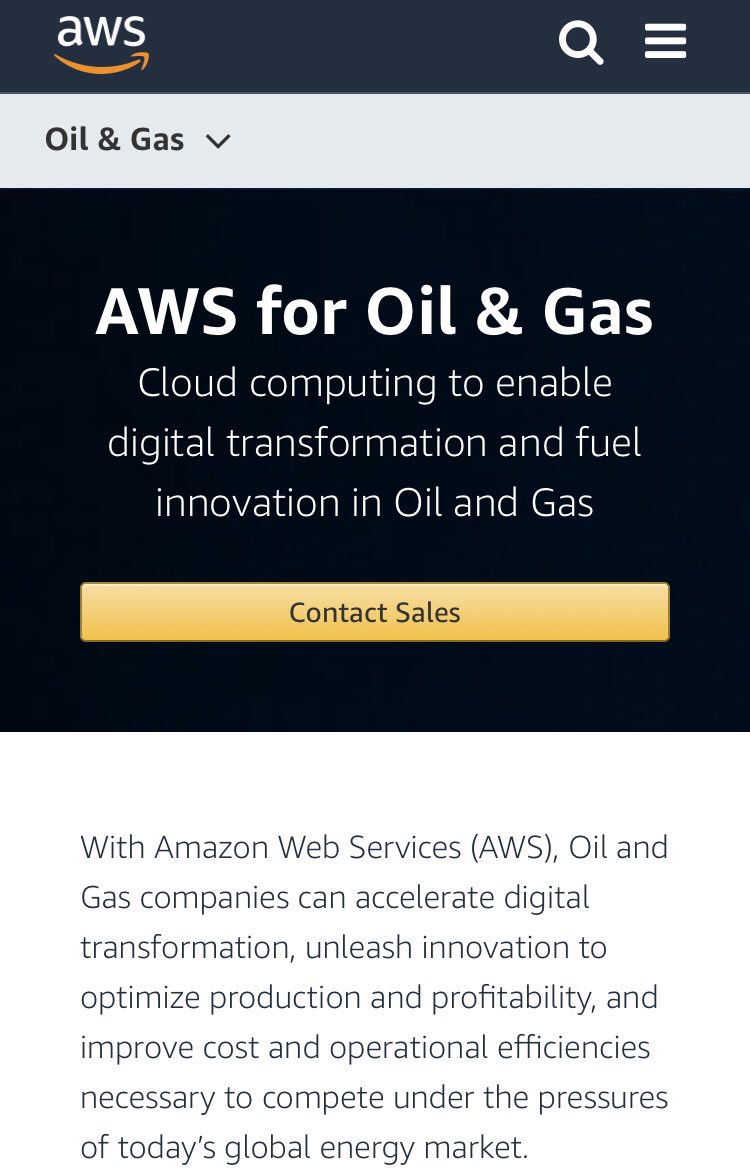What and how big are these risks? Investors need transparency on Amazon's risk assessment and management plans.
THREAD 👇
1/
2/
medium.com/@amazonemploye…
3/
4/
5/
kickstarter.com/projects/19108…
Amazon may not be a fossil fuel company, but that doesn't mean it's safe from the inevitable carbon bubble and a large-scale market correction.
6/
7/
Let's unpack (1) and (2) as it relates to Amazon, shall we?
8/
9/
marketwatch.com/story/amazon-o…
10/
qz.com/1539546/amazon…
usatoday.com/story/tech/tal…
11/
12/
gizmodo.com/amazon-is-aggr…
"On its website, Amazon says its customers include BP and Royal Dutch Shell, and its products can 'find oil faster,' 'recover more oil' and 'reduce the cost per barrel.'"
13/
nytimes.com/2019/04/10/tec…
14/
If Amazon is identified as being attached to & dependent on fossil fuels, they will also suffer though not as much. Let's say 5% of a correction cost. That’s a TON of money.
15/
16/
17/
18/
/19
Sure, energy may get cheaper, but there're political changes that might implement charges, fees, carbon taxes, etc which can happen faster than an unprepared company can respond to.
20/
Other expenses that don't get cheaper: the cost to buy expertise.
21/
What are the competitive disadvantages risks? What are Amazon’s financial risks and transition costs compared to its competitors if it comes to this late in the game?
22/
23/
24/
25/
Shareholders need transparency on climate stress tests. This kind of mechanism is a big thing being used in Europe right now.
26/
But Amazon shareholders need more stresses tested.
27/
—If there were a carbon bubble and a market adjustment
—If a serious carbon tax was imposed
—If there were a 20 point shift in public opinion on the climate issue
28/
This is an emerging awareness, but now that we understand, we have to act. We must also do these climate stress tests to understand it more clearly.
29/
30/
31/
32/
33/
sec.gov/Archives/edgar…
34/
Investors want transparency wrt these risks and opportunities.
35/
/fin







